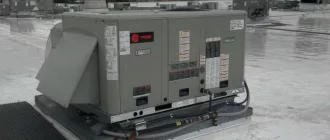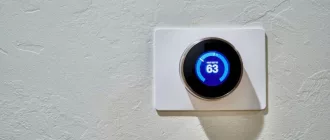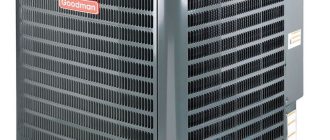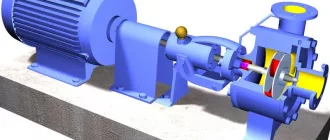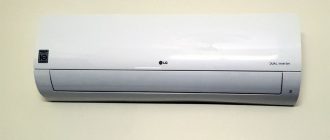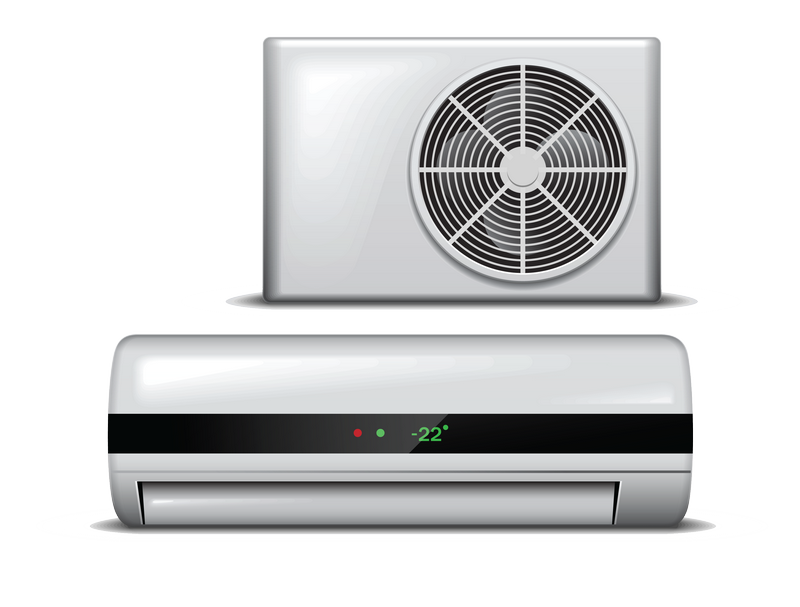
What is the new AC technology for 2023?
As we approach 2023, advances in AC technology continue to revolutionize the way we stay cool and comfortable. From increased energy efficiency to enhanced smart features, the new AC systems hitting the market offer a range of exciting benefits and improvements.
One of the key developments in AC technology for 2023 is improved energy efficiency. Manufacturers have been focusing on reducing energy consumption without compromising on performance. With rising concerns about climate change and the need for sustainable solutions, these energy-efficient AC systems provide an environmentally friendly option for homeowners and businesses alike.
Another noteworthy trend in AC technology is the integration of smart features. With the advent of the Internet of Things (IoT), AC units are now equipped with sensors and connectivity capabilities, allowing users to control and monitor their cooling systems from their smartphones or other devices. This not only offers convenience but also enables users to optimize energy usage and reduce costs.
Furthermore, the latest AC technology for 2023 introduces improved air purification systems.
Indoor air quality has become a growing concern, especially in urban areas with high pollution levels. AC units now come equipped with advanced filters and purification technologies to capture and remove airborne particles, allergens, and pollutants. This helps create a healthier indoor environment, particularly for individuals with respiratory conditions or allergies.
In conclusion, the AC technology landscape for 2023 is teeming with exciting advancements. From enhanced energy efficiency and integrated smart features to improved air purification systems, the latest AC systems offer a range of benefits for consumers. Whether it’s reducing energy consumption, increasing convenience, or improving indoor air quality, these developments are transforming the way we experience cooling and comfort in our daily lives.
Energy-Efficient Cooling Systems
In the ever-evolving world of air conditioning technology, one of the key trends that has emerged in recent years is the focus on energy efficiency. As concerns about climate change and rising energy costs continue to grow, manufacturers have been working hard to develop new cooling systems that consume less power while still providing optimal cooling performance.
One of the most exciting developments in energy-efficient cooling technology is the use of variable refrigerant flow (VRF) systems. Unlike traditional air conditioning systems that operate on a fixed speed, VRF systems can vary their cooling capacity depending on the specific requirements of different rooms or zones. By using advanced sensors and control algorithms, these systems can provide precise cooling where it is needed, reducing energy waste.
Another promising technology is the use of smart thermostats and connected devices. These innovative devices can learn and adapt to the preferences and habits of users, automatically adjusting the temperature and scheduling the cooling operations to minimize energy consumption. Additionally, they can be controlled remotely through smartphones or voice assistants, allowing users to manage their cooling systems from anywhere, further optimizing energy usage.
In addition to these new technologies, manufacturers have been improving the overall energy efficiency of air conditioning units by incorporating features such as advanced insulation materials, high-efficiency compressors, and intelligent fan control systems. These enhancements help reduce energy losses and improve overall cooling performance, resulting in significant energy savings over time.
Energy-efficient cooling systems not only benefit the environment by reducing greenhouse gas emissions but also help consumers reduce their energy bills. As these technologies continue to evolve and become more accessible, it is expected that they will become the new standard in air conditioning, ensuring sustainable and cost-effective cooling solutions for years to come.
Smart Thermostats and Remote Control
In 2023, the latest technology in air conditioning is all about convenience and control. Smart thermostats and remote control features have revolutionized the way we interact with our AC units. These advancements allow users to effortlessly manage their cooling systems from anywhere, at any time.
Smart thermostats are Wi-Fi enabled devices that can be connected to your AC unit, allowing you to control the temperature and settings remotely using a smartphone or tablet. With the help of mobile apps, users can easily adjust the temperature, set schedules, and even monitor energy usage. This level of control not only provides comfort but also helps in saving energy and reducing electricity bills.
Remote control features offer added convenience by allowing users to control their AC units without having to physically interact with the thermostat or AC controls. With just a few taps on your smartphone, you can turn on/off the AC, adjust the temperature, or switch between different modes. This is especially useful when you’re away from home and want to come back to a cool and comfortable environment.
Smart thermostats and remote control technology also come with additional features like voice control compatibility, learning capabilities, and integration with smart home systems. Voice control allows you to command your AC unit using popular voice assistants like Amazon Alexa or Google Assistant. Learning capabilities enable the thermostat to understand your usage patterns and automatically adjust settings to maximize comfort and efficiency. Integration with smart home systems enables synchronization with other devices, such as lights or blinds, for enhanced energy-saving capabilities.
Overall, smart thermostats and remote control features are transforming the way we interact with and manage our air conditioning systems. With their advanced capabilities and convenience, they are set to become an essential part of modern AC technology in the coming years.
Multi-Zone Cooling Options
In 2023, advancements in AC technology have brought new multi-zone cooling options to the market. These options allow you to create different temperature zones within your home or office, providing personalized comfort for each individual space.
With multi-zone cooling, you can control the temperature in each zone separately, eliminating the need to cool the entire space at the same temperature. This not only increases energy efficiency but also allows for greater comfort and flexibility.
One popular multi-zone cooling option is the ductless mini-split system. This system consists of an outdoor condenser unit and one or more indoor air handling units that are installed in each zone. Each indoor unit can be operated independently, allowing you to set different temperatures and airflow settings for each zone.
Another option is a central air conditioning system with zone control. This system uses dampers in the air ducts to control airflow to each zone. By opening or closing the dampers, you can adjust the amount of cool air delivered to each zone, providing customized cooling for each area of your home or office.
Multi-zone cooling options offer several benefits, including improved energy efficiency, lower utility bills, and increased flexibility. They are especially beneficial in larger spaces with multiple rooms or areas that have different cooling needs. By providing personalized comfort in each zone, these options ensure that everyone can enjoy the ideal temperature for their space.
| Increased energy efficiency |
| Lower utility bills |
| Customized cooling for each zone |
| Improved comfort and flexibility |
Improved Air Quality Features
With the advancement of technology, the latest AC systems introduce new features that not only cool the air but also improve indoor air quality. These innovative features aim to provide a healthier and more comfortable environment for users.
- Filtration System: The new AC systems come equipped with advanced filters that can effectively trap dust, pollen, pet dander, and other airborne particles. This helps to reduce allergies and respiratory issues, making the air cleaner and safer to breathe.
- Ionization Technology: Some AC units now incorporate ionization technology, which releases negative ions into the air. These ions can attach themselves to allergens and pollutants, causing them to clump together and become heavy, making it easier for the filters to capture them.
- UV-C Light: Another feature that is gaining popularity is the integration of UV-C light in AC systems. UV-C light has germicidal properties and can help eliminate bacteria, viruses, and mold spores that may be present in the air. This feature enhances the overall air quality and contributes to a healthier living environment.
- Air Ventilation: The latest AC technology also focuses on improving air circulation within a space. By constantly exchanging and refreshing the indoor air with fresh outdoor air, the AC system can remove stale air, odors, and indoor pollutants, ensuring a continuous flow of fresh and clean air.
These improved air quality features provide numerous benefits, including reducing allergies and respiratory issues, eliminating harmful microorganisms, and improving overall comfort. With the integration of advanced technologies, the new AC systems offer a significant improvement in air quality, making them a worthwhile investment for households and businesses.
Voice-Activated AC Systems
In 2023, the newest trend in air conditioning technology is voice-activated AC systems. These innovative systems use voice commands to control the temperature, fan speed, and mode of the AC unit.
With voice-activated AC systems, you can simply say commands like “set the temperature to 72 degrees” or “increase the fan speed” to control your AC unit. This hands-free technology provides a convenient and effortless way to adjust your AC settings.
Voice-activated AC systems are compatible with popular voice assistants like Amazon Alexa and Google Assistant. This means that you can control your AC unit using your voice through devices like smart speakers or your smartphone.
These systems also come with advanced features that enhance your comfort and convenience. For example, some voice-activated AC systems have the ability to learn your preferences over time and adjust the settings accordingly. This means that the AC unit can automatically set the temperature and fan speed based on your preferences without any manual input.
Furthermore, voice-activated AC systems can be integrated with other smart home devices. For instance, you can sync the AC unit with your smart thermostat or smart blinds to create a fully automated and energy-efficient home environment.
| Convenient and hands-free control |
| Compatibility with popular voice assistants |
| Ability to learn user preferences |
| Integration with other smart home devices |
In conclusion, voice-activated AC systems are the latest advancement in air conditioning technology for 2023. These systems provide a convenient and hands-free way to control your AC unit, and they come with advanced features that enhance your comfort and energy efficiency. With voice-activated AC systems, you can enjoy a truly personalized and automated home cooling experience.
Wi-Fi Connectivity and Mobile Apps
In the ever-evolving world of AC technology, one of the most exciting developments has been the integration of Wi-Fi connectivity and mobile apps. This new feature allows users to control and monitor their AC units from anywhere using their smartphones or tablets.
With Wi-Fi connectivity, users can easily adjust the temperature, set timers, and even change fan speeds without having to be physically present near the unit. This level of convenience and flexibility is a game-changer for those who are constantly on the move or prefer to control their AC units remotely.
Mobile apps have also revolutionized the way we interact with our AC units. These apps provide a user-friendly interface that allows for easy navigation and quick access to all the functions and settings of the AC unit. With just a few taps on the screen, users can customize their cooling preferences and create personalized schedules.
| 1. Remote control: Users can control their AC units from anywhere using their smartphones or tablets. |
| 2. Temperature adjustment: The ability to easily adjust the temperature settings to suit personal preferences. |
| 3. Timer settings: Set timers to turn the AC unit on or off at specific times. |
| 4. Fan speed control: Change the fan speed settings for optimal comfort. |
| 5. Energy-saving mode: Activate energy-saving modes to reduce energy consumption. |
Overall, the integration of Wi-Fi connectivity and mobile apps into AC units brings a new level of convenience and control for users. Whether you’re at home, at work, or on vacation, you can now ensure that your living space is at the perfect temperature, all with just a few taps on your smartphone.
Variable-Speed Compressors
One of the newest advancements in AC technology for 2023 is the introduction of variable-speed compressors. These compressors are designed to provide more precise and efficient cooling by adjusting their speed to match the cooling needs of a room in real-time.
Traditional AC compressors typically operate at a fixed speed, running at maximum capacity even when the cooling demand is low. This can result in energy wastage and inconsistent comfort levels. On the other hand, variable-speed compressors can adjust their speed according to the temperature and cooling requirements of a room, resulting in optimized energy usage and improved comfort.
With variable-speed compressors, the AC system can operate at lower speeds when the cooling load is light, saving energy and reducing wear and tear on the unit. When the cooling demand increases, the compressor can ramp up its speed to deliver faster cooling. This flexibility allows for more precise temperature control and quieter operation.
In addition to energy efficiency and improved comfort, variable-speed compressors also offer enhanced dehumidification capabilities. By running at lower speeds for longer periods, these compressors can remove more moisture from the air, creating a more comfortable indoor environment and preventing the growth of mold and mildew.
As technology continues to advance, AC systems equipped with variable-speed compressors are becoming increasingly popular in the market. These compressors are a noteworthy innovation for 2023, promising higher energy efficiency, improved comfort, and superior dehumidification capabilities compared to traditional AC compressors.
Quiet Operation Technologies
When it comes to new AC technology, one of the most sought-after features is quiet operation. No one wants a noisy AC unit that disrupts their peace and quiet. Fortunately, there are several technologies available that can make AC units almost whisper-quiet.
One such technology is sound insulation. AC units are now equipped with advanced insulation materials that effectively absorb and dampen noise. These materials are designed to prevent the transmission of sound, resulting in a much quieter operation. So, even if you have an AC unit running at its maximum capacity, you won’t be disturbed by the noise it generates.
Another technology that contributes to quiet operation is vibration reduction. AC units have internal components that move and vibrate during operation. These vibrations can cause noise, but with the use of vibration reduction technologies, those noises are minimized. Engineers have developed innovative methods to isolate and stabilize these components, resulting in significantly reduced vibration and noise levels.
Additionally, advanced fan technologies play a crucial role in maintaining quiet operation. AC units now come with fans that are designed to generate less noise. These fans have aerodynamic blades and are manufactured using materials that reduce turbulence and air resistance. As a result, the noise generated by the movement of air through the fan is significantly reduced, making the overall operation much quieter.
In conclusion, the latest AC technologies focus on ensuring quiet operation. Through the use of sound insulation, vibration reduction, and advanced fan technologies, AC units can operate with minimal noise. With these advancements, you can enjoy the comfort of a cool environment without any disturbance.
Environmentally-Friendly Refrigerants
In 2023, the latest AC technology brings new advancements in environmentally-friendly refrigerants. As the world becomes more aware of the importance of reducing greenhouse gas emissions, manufacturers are continuously working on developing innovative solutions that have a lower impact on the environment.
Traditional refrigerants, such as hydrochlorofluorocarbons (HCFCs) and hydrofluorocarbons (HFCs), have been widely used in air conditioning units for decades. However, these substances have a high global warming potential and contribute to the depletion of the ozone layer. This is why it is crucial to transition to more sustainable alternatives.
One of the key developments for 2023 is the adoption of natural refrigerants, such as hydrocarbons (HCs) and carbon dioxide (CO2), which have a much lower impact on the environment compared to traditional refrigerants. These natural refrigerants are non-toxic and have minimal global warming potential, making them a safer choice for both human health and the planet.
Another innovative technology that will be introduced in 2023 is the use of air as a refrigerant. Air-based cooling systems utilize the principles of thermodynamics to efficiently cool indoor spaces. These systems eliminate the need for traditional refrigerants altogether, further reducing their environmental impact.
In addition to these advancements, AC manufacturers are also focusing on improving energy efficiency. Energy-efficient air conditioners not only reduce greenhouse gas emissions, but also help homeowners save on their energy bills. This is achieved through the use of advanced compressor technologies, smart control systems, and better insulation.
In conclusion, 2023 will bring new environmentally-friendly refrigerants and AC technologies that aim to minimize the impact of air conditioning on the environment. By transitioning to natural refrigerants and improving energy efficiency, manufacturers are taking steps towards a greener future.
Advanced Filtration Systems
In 2023, the latest advancements in AC technology bring us new and improved filtration systems. These advanced filtration systems are designed to provide cleaner and healthier air for your home or office.
With the increasing concern for air pollution and indoor air quality, AC manufacturers have developed new filtration systems that can efficiently remove pollutants, allergens, and contaminants from the air. These systems use advanced filters that are designed to capture even the smallest particles, ensuring that the air you breathe is free from harmful substances.
One of the key features of these new filtration systems is their enhanced ability to remove allergens such as dust, pollen, pet dander, and mold spores. These filters are designed to efficiently trap these particles, preventing them from entering your living space and causing allergies or respiratory problems.
Additionally, the advanced filtration systems in 2023 AC units are also effective at removing contaminants such as smoke, odors, and volatile organic compounds (VOCs). This means that not only will you be breathing cleaner air, but your indoor environment will also be free from unpleasant smells and potentially harmful chemicals.
The new AC filtration systems also come with improved maintenance features. They are equipped with indicators that alert you when it’s time to change the filters, ensuring that your AC unit is always running efficiently and providing you with the cleanest air possible.
Overall, the advanced filtration systems in AC units for 2023 offer significant improvements in air quality, providing cleaner and healthier indoor environments for homes and offices. With these new filtration systems, you can breathe easy and enjoy the benefits of healthier air every day.
Enhanced Cooling Performance
In 2023, the new generation of AC technology brings enhanced cooling performance to your home or office. With advanced features and innovative designs, these state-of-the-art AC systems are designed to provide superior cooling efficiency.
One of the key features of the new AC systems is their ability to cool larger areas more effectively. These systems are equipped with high-capacity compressors and advanced cooling coils that can quickly and efficiently lower the temperature in any room.
Furthermore, the new AC technology incorporates smart sensors that can detect temperature changes and adjust the cooling settings accordingly. This ensures that your space remains at the desired temperature, regardless of the external conditions.
Another exciting feature of the new AC systems is their energy efficiency. These systems are designed to consume less energy while providing optimal cooling performance. This not only helps to reduce your energy bills but also minimizes environmental impact.
Additionally, the new AC technology offers improved air filtration systems. These systems use advanced filters to capture dust, pollen, and other allergens, providing cleaner and healthier indoor air quality. This is especially beneficial for individuals with respiratory issues or allergies.
In summary, the new AC technology for 2023 brings enhanced cooling performance through larger cooling capacities, smart temperature control, energy efficiency, and advanced air filtration systems. Upgrade to the latest AC technology to experience improved comfort and efficiency in your home or office.
Built-in Air Purification
In 2023, new AC technology will come equipped with built-in air purification systems. These advanced systems will filter out pollutants, allergens, and other harmful particles from the air, ensuring that you breathe in clean and fresh air.
The air purification technology will employ multiple filters to trap contaminants, such as dust, pet dander, pollen, and smoke. These filters will be highly efficient in removing even the smallest particles, providing improved air quality for your home or office.
With the built-in air purification feature, you can experience numerous benefits. Firstly, it helps to minimize the risk of respiratory issues, allergies, and asthma by removing triggers from the air. This is especially beneficial for individuals with pre-existing respiratory conditions. Additionally, the improved air quality can enhance overall well-being and contribute to a healthier living environment.
The built-in air purification systems in the new AC technology will be easy to maintain. The filters can be easily cleaned or replaced, ensuring optimal performance and longevity. Regular maintenance will be essential to keep the air purification system functioning optimally.
In summary, the new AC technology for 2023 will bring the convenience and benefits of built-in air purification systems. With these innovative systems, you can enjoy cleaner and healthier air, creating a more comfortable and safe environment for you and your loved ones.
Improved Energy Management
In 2023, a new generation of AC technology is set to revolutionize the way we manage energy in our homes. With advanced algorithms and smart sensors, these AC units are designed to be more efficient than ever before.
One of the key features of these new AC units is their ability to constantly monitor the temperature and humidity levels in a room. By doing so, they can automatically adjust their cooling or heating output to maintain a comfortable environment while minimizing energy waste.
Additionally, these AC units can connect to a Wi-Fi network, allowing users to control and monitor their units remotely. This feature enables homeowners to optimize energy usage by adjusting temperature settings based on their schedule and preferences.
Furthermore, these AC units come equipped with intelligent scheduling capabilities. Users can program the AC to automatically turn on or off at specific times, ensuring that it’s only running when needed. This feature not only helps save energy but also allows users to come home to a comfortable environment without having to manually adjust the settings.
In summary, the new AC technology being introduced in 2023 promises improved energy management through advanced sensors, remote control capabilities, and intelligent scheduling. With these features, homeowners can expect to reduce their energy consumption and make their homes more eco-friendly without sacrificing comfort.
Smart Sensors and Auto-Adjustment
In 2023, the latest technology in air conditioning (AC) is focused on smart sensors and auto-adjustment capabilities. These advancements are designed to provide a more efficient and comfortable cooling experience for users.
Smart sensors are integrated into AC units to monitor various environmental factors and adjust settings accordingly. These sensors can detect room temperature, humidity levels, air quality, and occupancy. With this data, the AC system can automatically optimize its operation to maintain the desired comfort level while conserving energy.
One of the key features enabled by smart sensors is auto-adjustment. AC units equipped with this technology can automatically adjust cooling levels based on the detected occupancy in a room. If no one is present, the AC system can reduce its cooling capacity to save energy. When someone enters the room, the AC system can quickly adapt and cool the space to the desired temperature.
Another benefit of smart sensors is their ability to monitor air quality. These sensors can detect pollutants, allergens, and other harmful particles in the air. If poor air quality is detected, the AC system can activate additional filters or adjust ventilation to improve the indoor environment and ensure the well-being of occupants.
In addition to smart sensors, auto-adjustment capabilities also extend to other aspects of the AC system. For example, some units can automatically adjust air direction and flow, redirecting cool air towards areas that need it the most. This helps to provide consistent and optimal cooling throughout the room.
Overall, the incorporation of smart sensors and auto-adjustment capabilities in AC technology for 2023 offers numerous benefits. It enables a more energy-efficient operation, promotes better indoor air quality, and provides a more comfortable and personalized cooling experience for users. As technology continues to advance, we can expect even more innovative features to enhance the performance and efficiency of AC systems in the future.
| 1. Energy efficiency |
| 2. Improved indoor air quality |
| 3. Personalized cooling experience |
| 4. Optimal cooling throughout the room |
Increased Durability and Reliability
As technology continues to evolve in 2023, so does the functionality and durability of air conditioning units. The latest AC technology is focused on providing users with increased durability and reliability.
One of the key advancements in AC technology is the use of advanced materials that are designed to withstand harsh environmental conditions. This means that the AC units of 2023 are more resistant to corrosion, rusting, and general wear and tear. With these improvements, users can expect their AC units to have a longer lifespan and require less maintenance.
Another aspect of increased durability and reliability in AC units is the advancement in manufacturing techniques. Manufacturers are now using state-of-the-art machinery and processes to ensure that each component of the AC unit is produced to the highest quality standards. This ensures that the AC unit operates efficiently and effectively, even under demanding conditions.
In addition to improved durability, the latest AC technology also focuses on enhancing reliability. AC units of 2023 are equipped with advanced sensors and microprocessors that constantly monitor the unit’s performance. This allows the unit to automatically adjust its settings and make necessary changes to maintain optimal performance and efficiency.
Furthermore, AC units now come with built-in diagnostic systems that can detect and diagnose any issues or malfunctions. By identifying potential problems early on, users can take preventative measures to avoid costly repairs and breakdowns. This not only saves money but also prevents any inconvenience or discomfort caused by a malfunctioning AC unit.
| Advantages | Benefits |
| Increased durability | Longer lifespan and less maintenance |
| Enhanced reliability | Optimal performance and efficiency |
| Built-in diagnostic systems | Early detection of issues and malfunctions |
Q&A:
What are the latest advancements in AC technology for 2023?
In 2023, there have been several advancements in AC technology. One of the latest advancements is the use of smart thermostats, which allow users to control their AC units remotely through a smartphone app. Another advancement is the use of inverter technology, which helps AC units operate more efficiently and quietly. Additionally, there have been improvements in air filtration systems, with some AC units now featuring advanced HEPA filters to remove even more allergens and pollutants from the air.
Can you explain how smart thermostats work for AC units?
Smart thermostats work by connecting to a home’s Wi-Fi network and allowing users to control their AC units through a smartphone app. The thermostat can be programmed to follow a specific schedule or can be adjusted manually from anywhere using the app. Some smart thermostats even have advanced features, such as geofencing, which can detect when the user is away from home and adjust the temperature accordingly to save energy. Overall, smart thermostats provide convenience and energy savings by allowing users to have more control over their AC units.
How does inverter technology improve the performance of AC units?
Inverter technology is a recent advancement in AC units that helps improve their performance in several ways. Traditional AC units operate at a fixed speed and turn on and off to maintain the desired temperature. In contrast, AC units with inverter technology can vary their speed and adjust the cooling capacity based on the current conditions. This allows the units to operate more efficiently, as they don’t have to constantly turn on and off. Inverter technology also helps AC units operate more quietly, as they don’t produce sudden bursts of noise when turning on.
What are the benefits of using advanced air filtration systems in AC units?
There are several benefits to using advanced air filtration systems in AC units. First and foremost, these systems help improve indoor air quality by removing more allergens, pollutants, and particles from the air. This is especially beneficial for individuals with respiratory conditions or allergies. Advanced air filtration systems can also help reduce odors and provide a healthier and more comfortable living environment. Additionally, some AC units with advanced air filtration systems may also help prolong the lifespan of the unit by preventing the build-up of dust and debris inside.
Will the latest AC technology be more expensive than previous models?
The cost of the latest AC technology can vary depending on the brand, model, and features. In general, newer AC units with advanced technology such as smart thermostats, inverter technology, and advanced air filtration systems may be priced higher than previous models. However, it’s important to consider the long-term benefits and energy savings that these advancements can provide. AC units with smart thermostats, for example, can help optimize energy usage and potentially lower electricity bills. Ultimately, the decision to invest in the latest AC technology will depend on individual preferences, needs, and budget.


